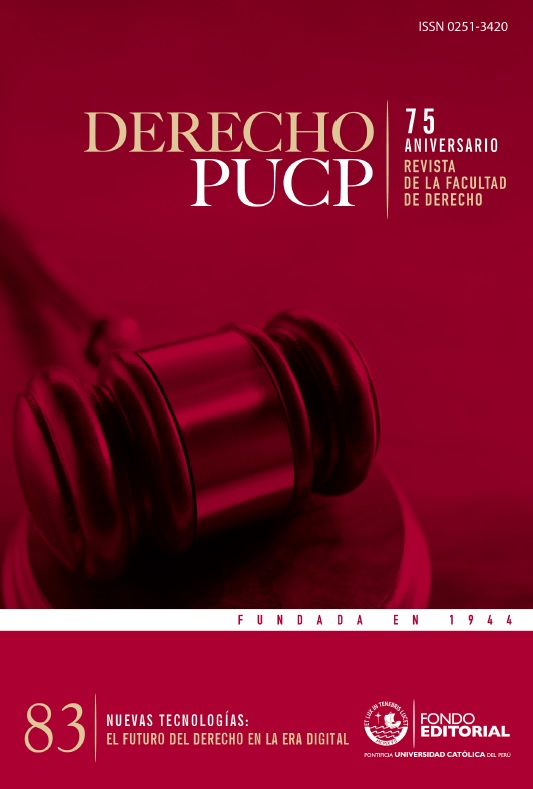Acceso a la justicia, cultura y online dispute resolution
DOI:
https://doi.org/10.18800/derechopucp.201902.001Palabras clave:
Proceso civil, Cultura, Online dispute resolution, Acceso a la justiciaResumen
A lo largo de las últimas décadas, es innegable el avance experimentado por el discurso procesal civil con respecto a los medios alternativos de resolución de conflictos (alternative dispute resolution o ADR). En este sentido, es recurrente que este aspecto sea comparado con la garantía de acceso a la justicia, al verificarse la compatibilidad entre ambos elementos. El presente estudio trata de analizar esta cuestión, observando específicamente la posibilidad de que los medios de online dispute resolution (ODR) desempeñen un papel no solo pertinente sino también creciente e inevitable en nuestra realidad. Ello se hace teniendo en cuenta, especialmente, la naturaleza de la cultura del proceso civil y de sus postulados.





